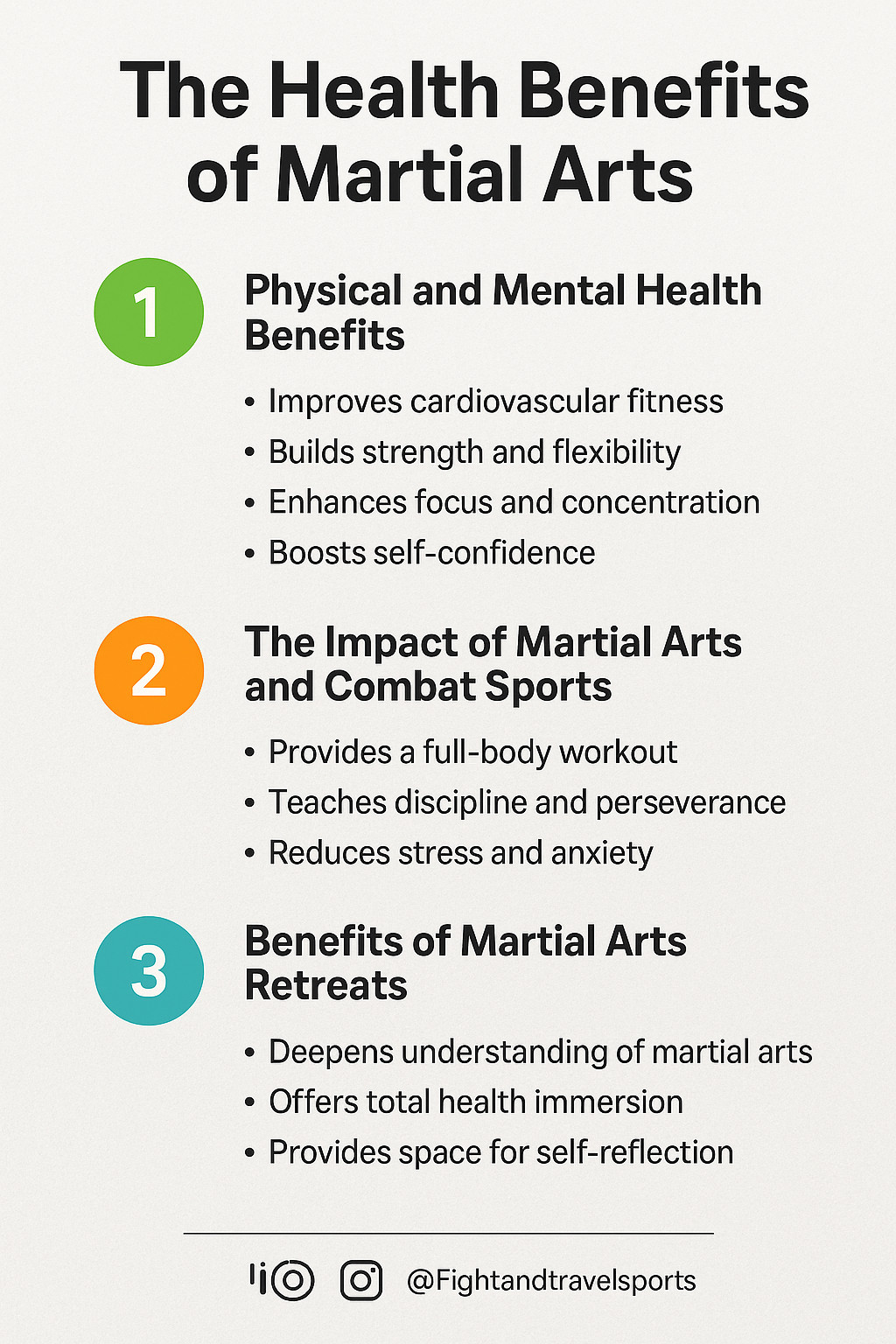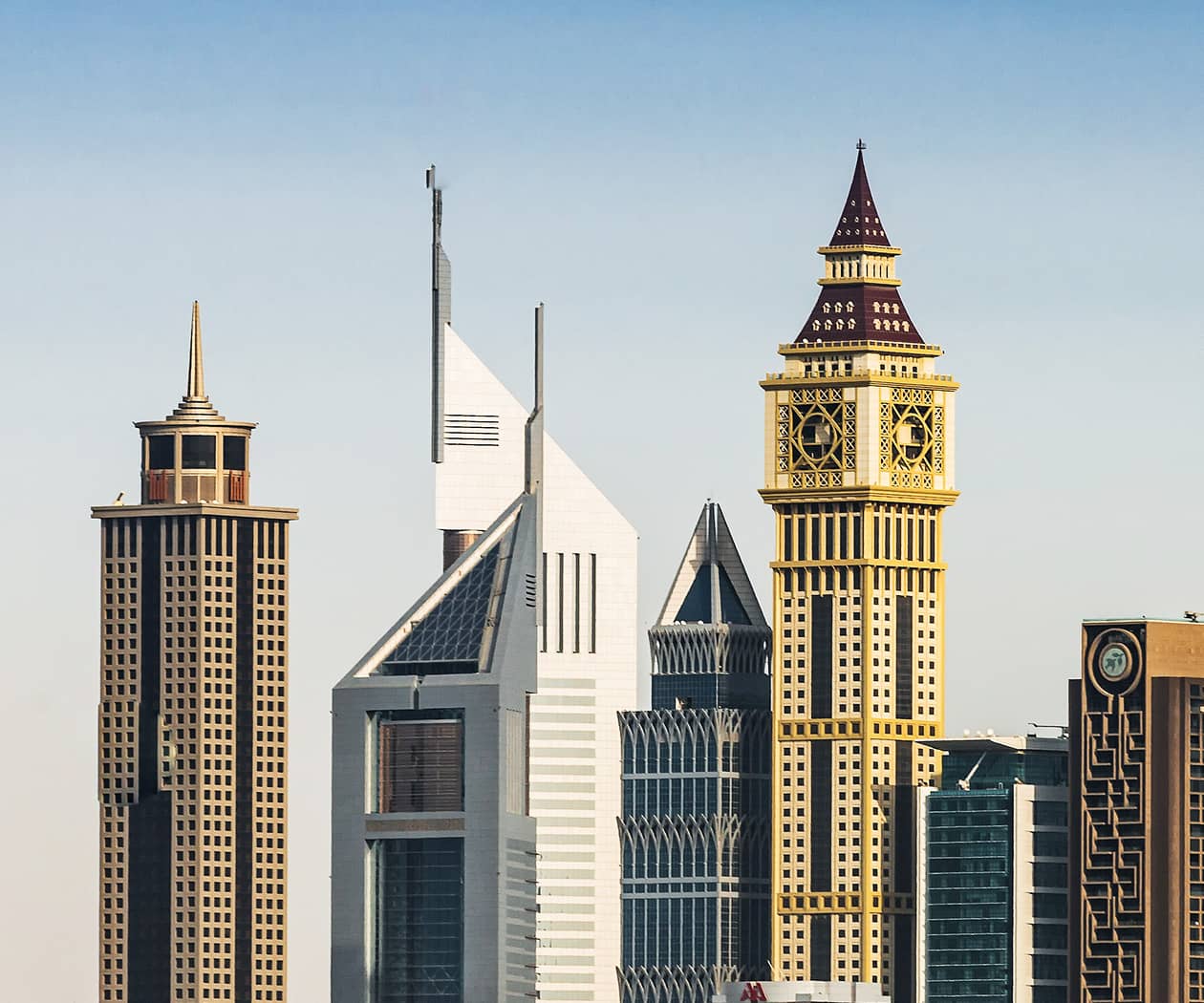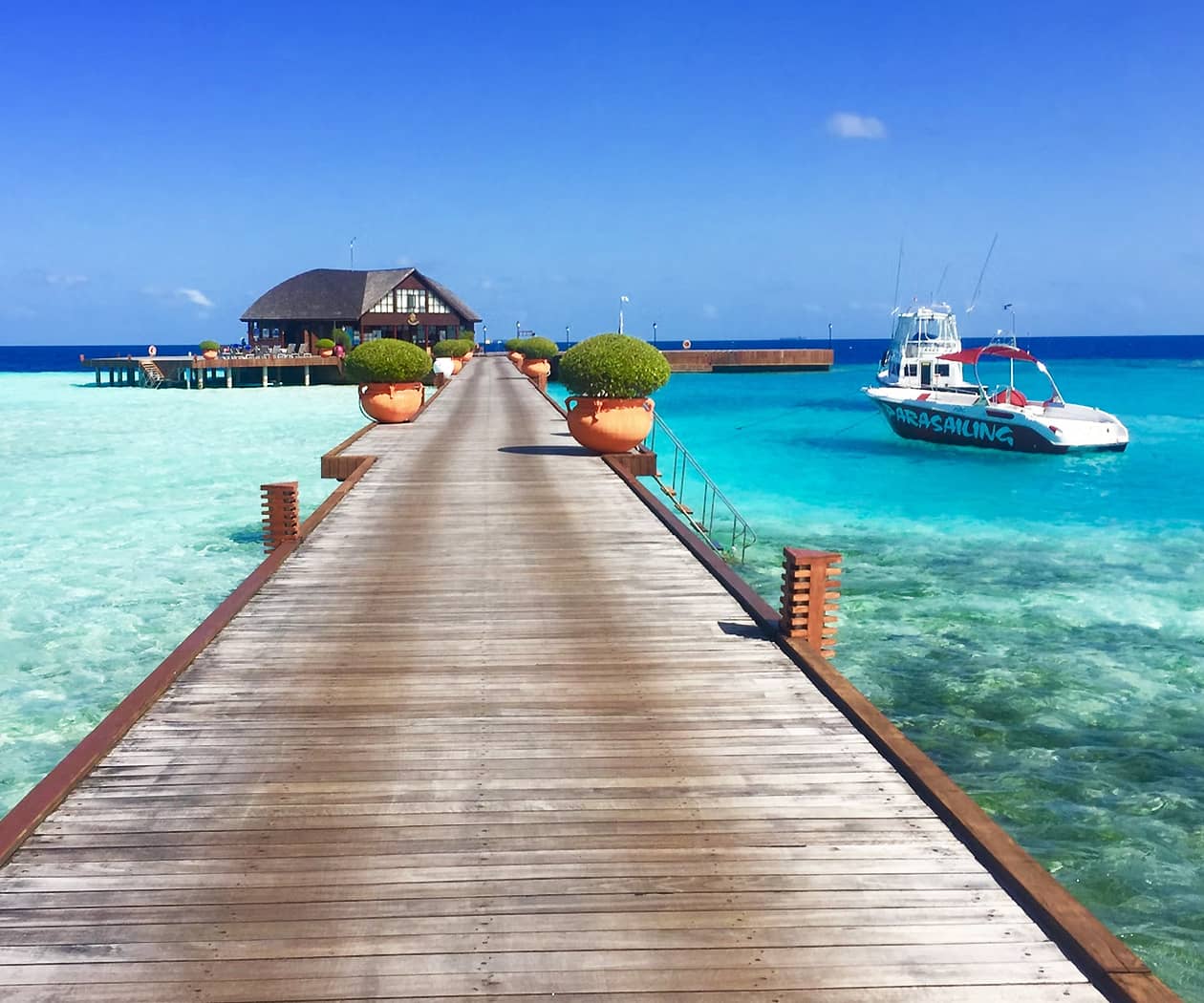The Total Benefits of Sport—and Why Martial Arts & Training Abroad Supercharge Your Health

Benefits of martial arts and sport—and Why Martial Arts & Training Abroad Supercharge Your Health
1) The universal benefits of sport (backed by science)
Regular physical activity lowers your risk of major noncommunicable diseases, improves brain health, and reduces symptoms of anxiety and depression. Global guidelines recommend 150–300 minutes of moderate or 75–150 minutes of vigorous activity per week for substantial benefits. PMC+1
A large meta-analysis shows people who are more active have significantly lower odds of developing depression, even at activity levels below standard recommendations—meaning any increase helps. PubMed
Bottom line: consistent training is one of the most reliable investments in your long-term health and mood. PMC
2) Why martial arts & combat sports are uniquely powerful
Beyond general fitness, martial arts/combat sports add specific advantages:
-
Full-body conditioning & motor skills
Striking, grappling, balance, reaction time, and mobility are trained in every session—improving cardiorespiratory fitness, strength, flexibility, and postural control. PMC -
Mental health & resilience
Systematic reviews link martial arts training to meaningful improvements in mental health (small-to-moderate effects), including mood, self-regulation, and self-esteem. PubMed+2ResearchGate+2 -
Focus, discipline, and confidence
Psych and exercise research consistently shows physical training supports focus and reduces stress; martial arts add structure, feedback, and community accountability. APA
“Regular physical activity provides significant physical and mental health benefits.” — World Health Organization.
3) Why a retreat abroad multiplies the benefits
Taking your training abroad adds three accelerators: environment, immersion, and mindset.
a) Environment change → mindset reset
Stepping out of routine removes distractions and sharpens focus—one reason retreat formats are associated with improvements in stress, mood, and quality of life that can last weeks after returning home. PMC+2PMC+2
b) Immersion & culture → deeper learning
Study-abroad research shows measurable gains in independence, resilience, and intercultural skills—the same traits martial artists value. ESCE+1
c) Travel & nature → well-being boost
Leisure travel frequency correlates with higher quality of life; exposure to green/blue spaces and “novelty” experiences supports mental health and stress reduction. SAGE Journals+1
Put together: A combat-sports retreat abroad combines the physiology of training, the psychology of retreats, and the growth effects of travel—a triple win for body and mind. World Health Organization
4) What changes you can expect (fighters’ outcomes)
-
Faster progress: concentrated blocks of coaching & reps.
-
Higher adherence: social support + structured schedule.
-
Confidence & clarity: overcoming language/cultural barriers builds self-efficacy that transfers home.
-
Recovery routines: massage, mobility, sleep hygiene, and nutrition become habits, not afterthoughts. PMC
5) Safety & smart planning (quick checklist)
-
Medical: travel insurance that covers combat training; disclose any conditions. PMC
-
Load management: ramp volume, respect rest days, prioritize sleep. PMC
-
Hydration & eat: plan electrolytes if training in the tropics.
-
Mindset: set 1–2 training goals + 1 lifestyle goal; journal progress.
6) Sample 7-day structure (retreat abroad)
-
AM: skill + conditioning (90–120 min)
-
Midday: recovery (mobility, cold/heat, nap, protein-rich meal)
-
PM: technical drilling or sparring (60–90 min)
-
Daily add-on: 15-minute reflection (mindset, goals, gratitude)
Ready to turn science into experience?
Train. Travel. Transform.
Start your martial arts retreat plan with Fight & Travel—we’ll match you to the right destination, program, and recovery plan for your goals.






